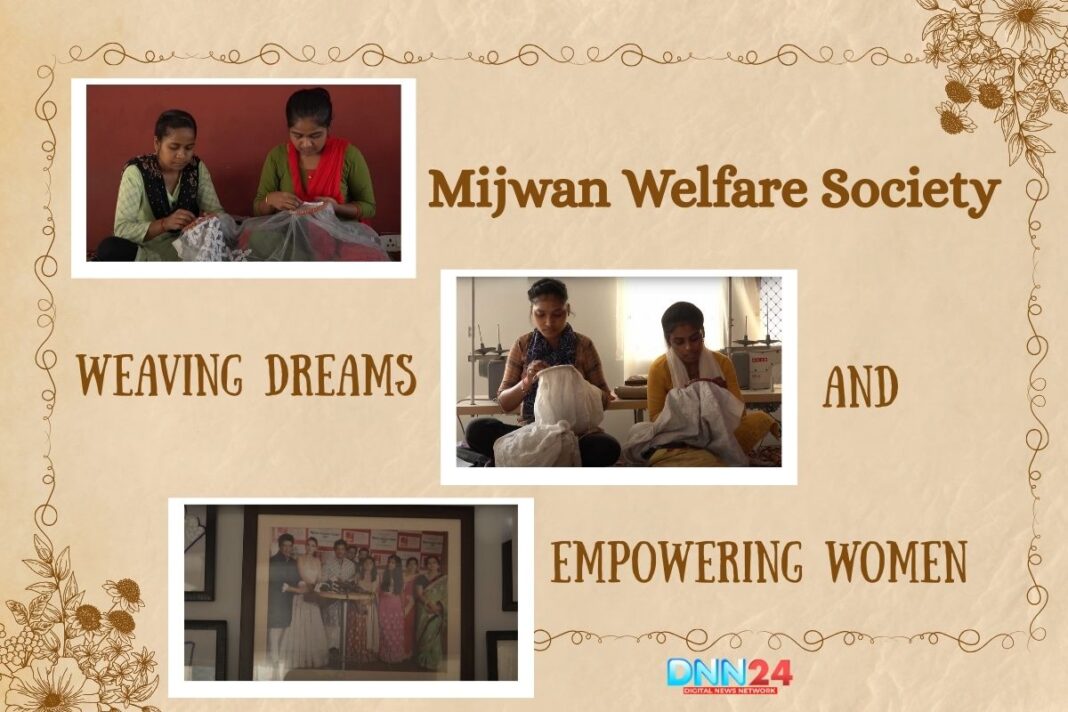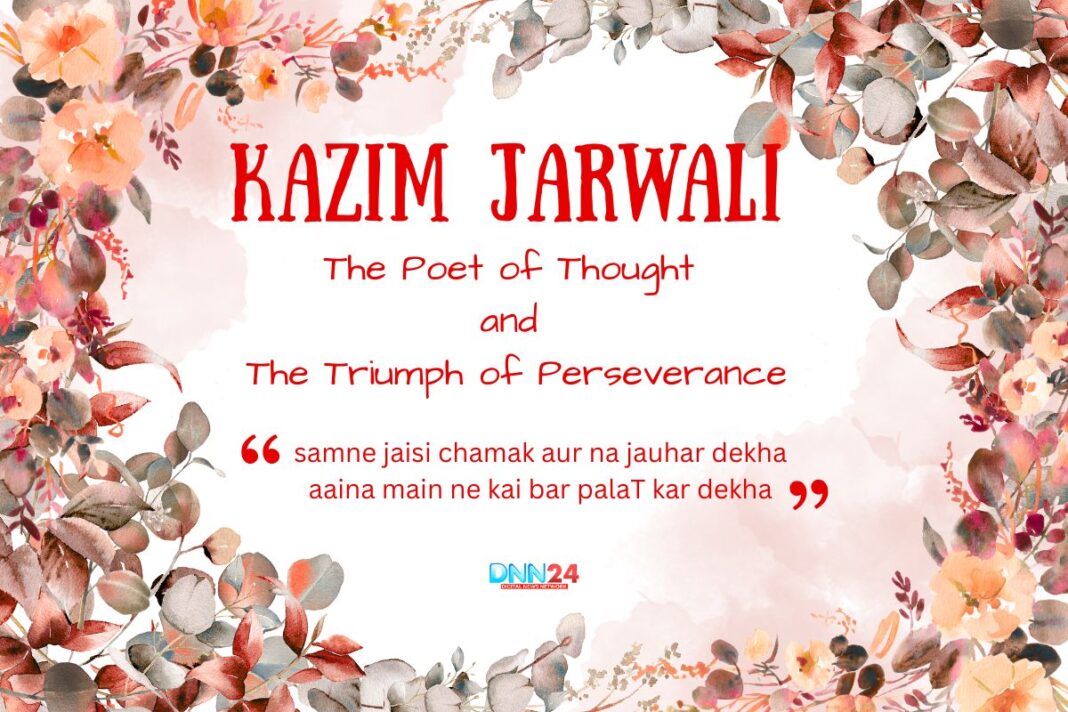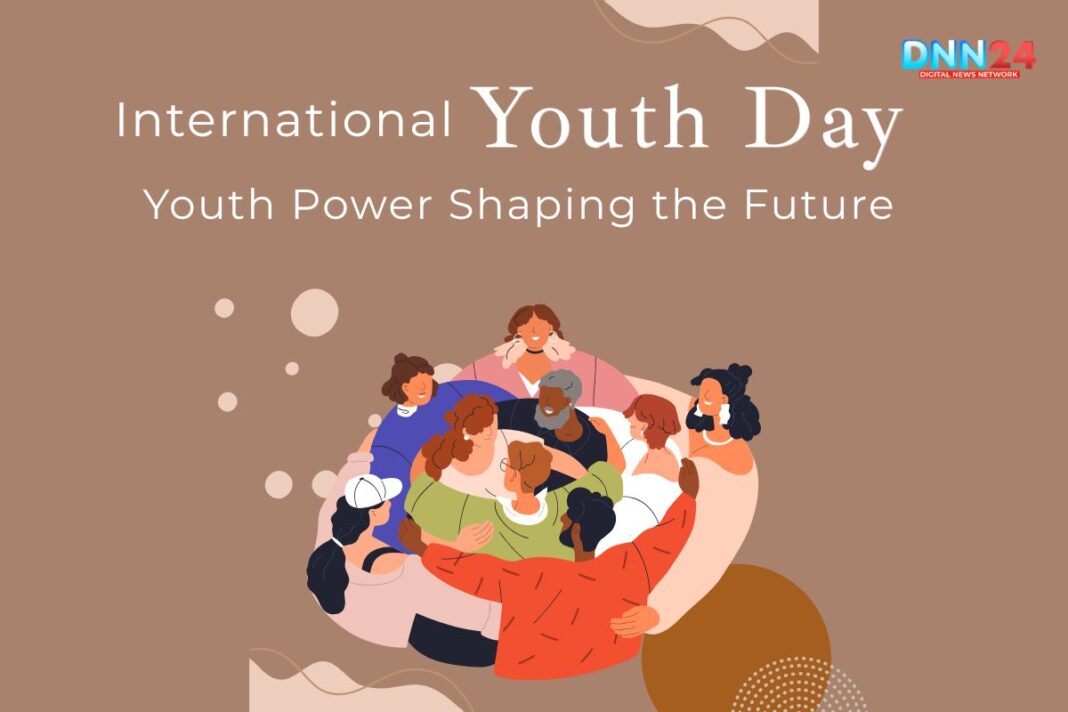In 1993, it was special in a small village of Uttar Pradesh, the district Azamgarh, called Mijwan. Famous Urdu poet Kaifi Azmi started the Mijwan Welfare Society (MWS) in 1993 to uplift rural India, focusing on the girl child and women. The mere thought of a single room has grown to a two-story house that has provided hope and job opportunities to hundreds of women.
Kaifi Azmi sahab was not only a poet who used to write beautiful shayari. He was a man who cared about his village and people a lot. After years in the film industry in Mumbai, when he returned to Mijwan, he realised that women in his town lacked a chance to earn money and become independent. So he resolved to do nothing about it. The impact of this small start today is so significant that it supports women of Mijwan village and women of numerous villages around. Society has become a true example of how one person’s vision can change the lives of so many people.
The Magic of Chikankari: Teaching Women Traditional Skills
The magic happened when Kaifi Sahab invited Runa Banerjee to train local women in chikankari embroidery. Sangyogita, who is now the Chief Coordinator of Mijwan Welfare Society, remembers those early days very clearly. She narrates to us how one day Kaifi Sahab called her and told her to come with 10-12 women. Nobody at first had any idea of what chikankari was and how it would transform their lives.
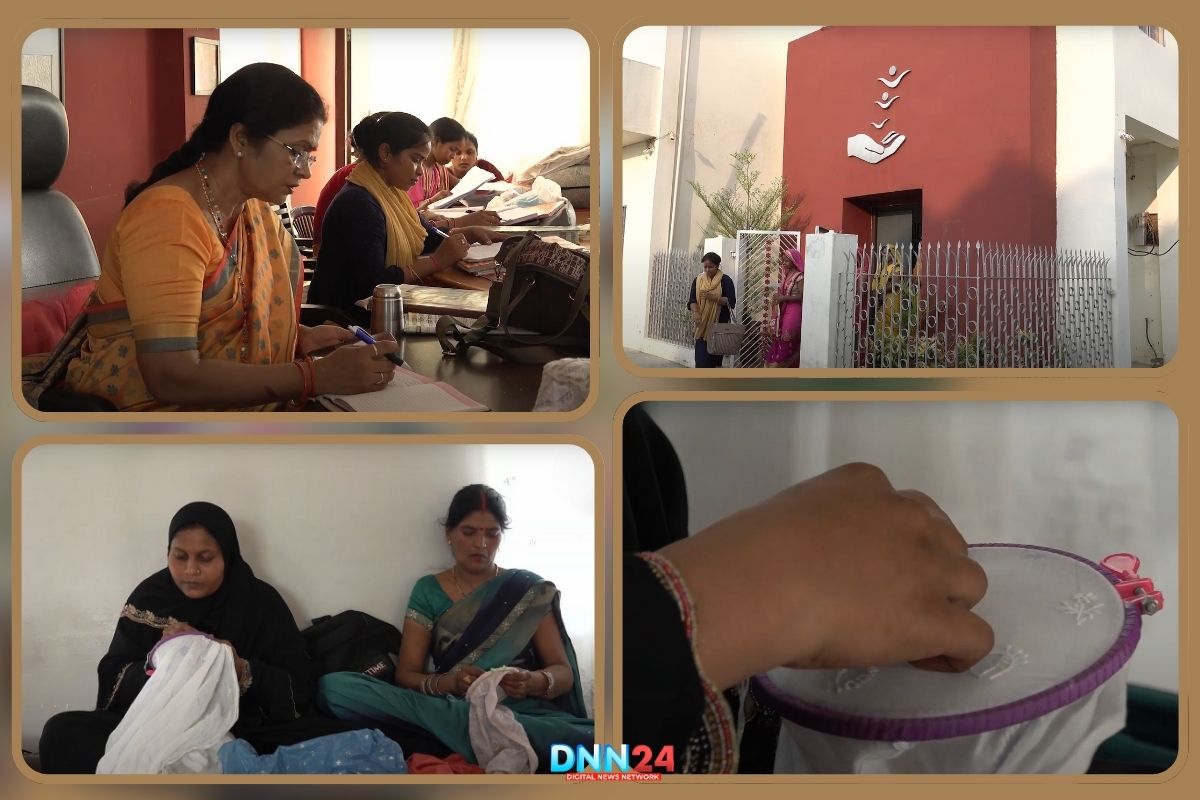
Runa ji then asked them, What will you do? Should I teach you this work? Innocently, Sangyogita answered that she would draw designs on her garments. This initial beginning altered all of it, however. An initial 20-25 girls have now increased to 500-600 women who earn money on this traditional embroidery work. These women now work on everything, printing, embroidering, stitching, all in the name of the beautiful art of chikankari. The women were taught a trade and discovered how to feed their families and become self-sufficient.
Fashion Shows that Changed Everything
Since 2009, Mijwan Welfare Society has organised an annual fashion show where prominent designers like Anita Dongre and Manish Malhotra showcase clothes made by the women of Mijwan. Just think of the emotion of these village women as they watched big Bollywood stars strutting on the ramp in clothes they had stitched with their own hands. Sangyogita becomes sentimental, recollecting those instances. She says tears of happiness came to her eyes when she saw her girls’ hard work appreciated on such a big platform.
Working with designers and brands such as Manish Malhotra, the rural women can earn an average of 3500 INR per month doing Chikankari work under the “Made in Mijwan” brand. This amount may not be much to the urbanites, but it makes a tremendous difference in their lives when women earn an income like this in a small village. They can now contribute to their family’s expenses, better educate their children, and most importantly, feel proud and confident about themselves. These talented women and their beautiful work have been recognised internationally through the fashion shows.
More Than Just Embroidery: Complete Development
Mijwan Welfare Society is not just about teaching embroidery. Manager Ashutosh Tripathi articulates that the organisation has many other programs as well. Children have their school called Kaifi Azmi Girls Inter College and Computer Training Centre, where they learn computer skills. The society also possesses a Sports Academy that has an indoor badminton court where children are trained in badminton and martial arts.
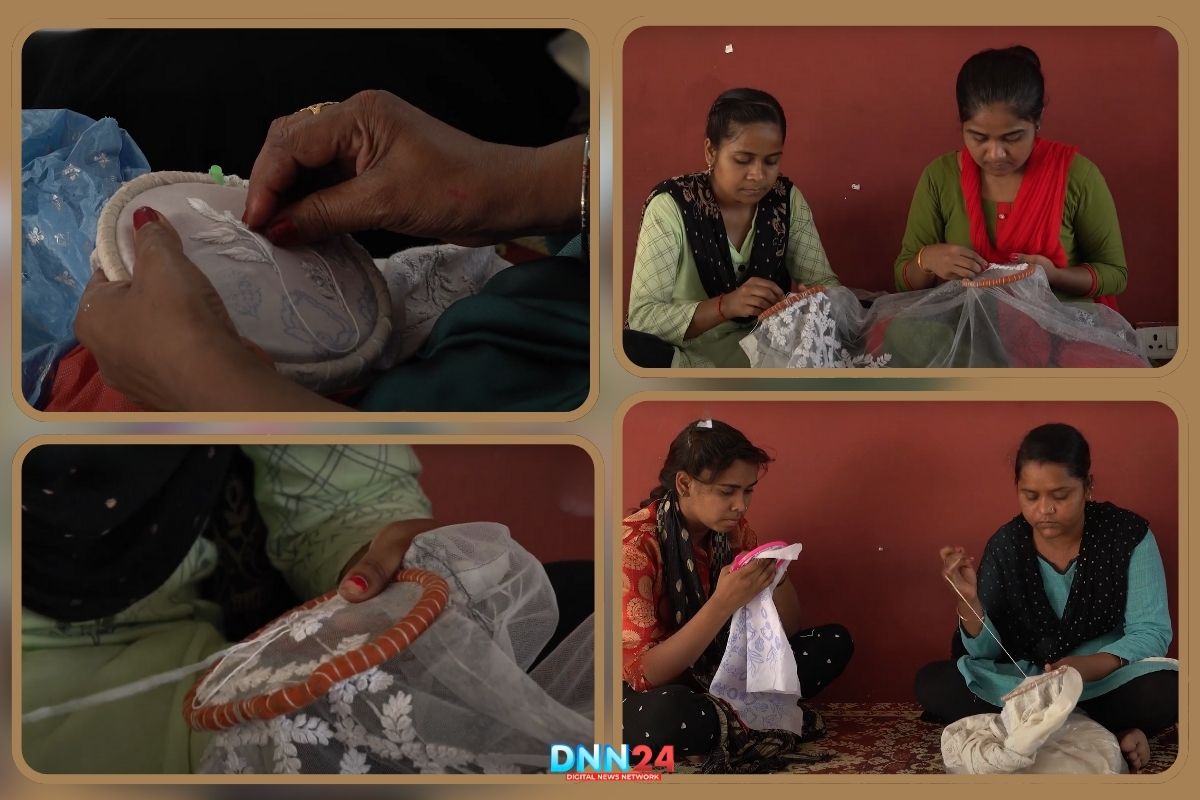
The organisation also undertakes programs to inform people about the government schemes and how they can utilise them. This shows that Mijwan Welfare Society believes in the complete development of the community. They know it is not enough to teach one skill; people require education, sports, knowledge about their rights, and much more to help them improve their lives. A nine-member executive committee manages the Mijwan Welfare Society, of which four are women, with members from all castes and communities. This all-inclusive strategy has assisted the organisation in reaching out to more people and making a larger impact.
The Legacy Continues: Dreams for the Future
Today, when you visit Mijwan, you can see the beautiful changes due to one man’s vision. Kaifi Azmi’s house, ‘Fateh Manzil’, stands just 20 meters from the Welfare Society building, reminding everyone of the poet who dreamed of a better future for his village. His only daughter, Shabana Azmi, is a renowned actress and still promotes the venture initiated by her father.
These Mijwan women have now gone to Delhi and other major cities, met with renowned designers and presented their work. They have become confident and skilled in what they did not believe possible. Some of them have become coordinators and teachers to impart the same skills to other women that transformed their lives. The success of Mijwan Welfare Society shows us that with proper support and training, women in even the smallest villages can achieve great things. These women are not only making money today, but they are also making a name for themselves and their town on the national and international platforms.
Also Read: Stitching the Nation’s Pride: The Women Behind India’s Tricolour
You can connect with DNN24 on Facebook, Twitter, and Instagram and subscribe to our YouTube channel.

